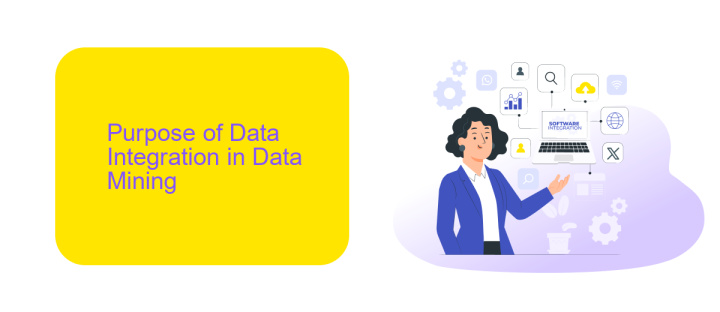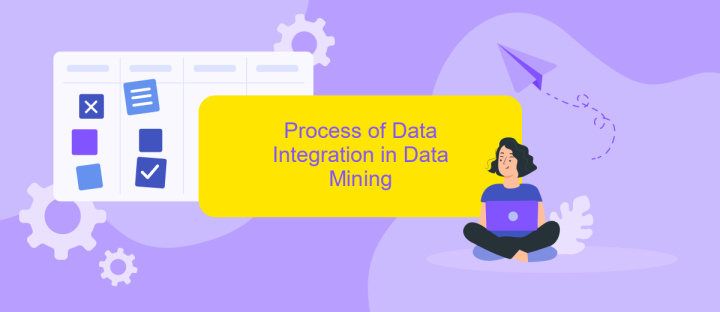What is Data Integration in Data Mining
Data integration in data mining is a crucial process that involves combining data from different sources to provide a unified view. It enables organizations to analyze large datasets more effectively, uncovering valuable insights that drive informed decision-making. This article explores the fundamentals of data integration, its significance in data mining, and the methodologies employed to achieve seamless data unification.
Introduction
Data integration is a crucial process in data mining, combining data from different sources to provide a unified view. This unified data is essential for comprehensive analysis, enabling organizations to make informed decisions and derive actionable insights. In today's data-driven world, effective data integration is more important than ever.
- Combining data from multiple sources
- Ensuring data consistency and quality
- Facilitating comprehensive analysis
One of the tools that can simplify data integration is ApiX-Drive. This service allows users to automate data transfer between various platforms without needing extensive technical knowledge. By using ApiX-Drive, businesses can streamline their data processes, ensuring that data is always up-to-date and readily available for analysis. This not only saves time but also enhances the accuracy and reliability of the data.
Purpose of Data Integration in Data Mining

Data integration in data mining serves the essential purpose of combining data from different sources to provide a unified view. This process is crucial for ensuring that the data used in mining is consistent, accurate, and comprehensive. By integrating data, organizations can eliminate redundancies and discrepancies, leading to more reliable and insightful analysis. This unified data can then be used to uncover hidden patterns, trends, and correlations that might not be visible when data is siloed.
Moreover, data integration facilitates smoother data management and accessibility. Tools like ApiX-Drive can significantly simplify this process by automating the integration of various data sources. ApiX-Drive allows businesses to connect multiple applications and services effortlessly, ensuring seamless data flow and synchronization. This not only saves time and resources but also enhances the overall efficiency and effectiveness of data mining efforts. Ultimately, data integration is a foundational step that empowers organizations to make data-driven decisions with confidence.
Process of Data Integration in Data Mining

Data integration in data mining involves combining data from different sources to provide a unified view. This process is crucial for ensuring data consistency and improving the quality of insights derived from data mining activities.
- Data Collection: Gather data from various sources such as databases, APIs, and flat files.
- Data Cleaning: Remove inconsistencies and errors to ensure data quality.
- Data Transformation: Convert data into a common format or structure.
- Data Loading: Store the integrated data in a data warehouse or data lake.
- Data Validation: Verify the accuracy and completeness of the integrated data.
Using tools like ApiX-Drive can simplify the data integration process by automating the collection and transformation of data from multiple sources. This ensures that data is consistently formatted and readily available for analysis, thereby enhancing the efficiency and effectiveness of data mining operations.
Benefits of Data Integration in Data Mining

Data integration in data mining involves combining data from various sources to provide a unified view. This process is essential for businesses seeking to extract meaningful insights from their data. By integrating data, organizations can enhance the accuracy and comprehensiveness of their analyses, leading to more informed decision-making.
One of the primary benefits of data integration is the ability to streamline operations. When data from different departments and systems is consolidated, it reduces redundancy and ensures consistency. This unified data approach enables businesses to identify trends and patterns that might be missed when data is siloed.
- Improved data quality and accuracy
- Enhanced decision-making capabilities
- Greater operational efficiency
- Comprehensive insights and analytics
Tools like ApiX-Drive facilitate seamless data integration by automating the process of connecting various data sources. This not only saves time but also minimizes the risk of human error. By leveraging such services, businesses can ensure that their data integration efforts are both efficient and effective, ultimately leading to better data-driven outcomes.
- Automate the work of an online store or landing
- Empower through integration
- Don't spend money on programmers and integrators
- Save time by automating routine tasks
Challenges in Data Integration in Data Mining
Data integration in data mining presents several challenges that can hinder the seamless merging of disparate data sources. One of the primary issues is the heterogeneity of data formats, structures, and semantics. Different systems may store data in various formats such as relational databases, NoSQL databases, or flat files, making it difficult to standardize and combine them. Additionally, data quality issues like missing values, duplicates, and inconsistencies can further complicate the integration process, requiring extensive cleaning and preprocessing efforts.
Another significant challenge is ensuring real-time data synchronization and maintaining data integrity across multiple sources. This is particularly crucial for businesses that rely on timely and accurate data for decision-making. Tools like ApiX-Drive can facilitate this process by providing automated workflows and seamless integration between various applications and services. However, even with such tools, achieving and maintaining high levels of data security and privacy remains a persistent concern, especially when dealing with sensitive information. Ensuring compliance with regulatory standards and safeguarding against unauthorized access are critical aspects that need to be addressed to achieve successful data integration in data mining.
FAQ
What is Data Integration in Data Mining?
Why is Data Integration important in Data Mining?
What are the common challenges in Data Integration?
How can automation tools assist in Data Integration?
What are the key steps in the Data Integration process?
Strive to take your business to the next level, achieve your goals faster and more efficiently? Apix-Drive is your reliable assistant for these tasks. An online service and application connector will help you automate key business processes and get rid of the routine. You and your employees will free up time for important core tasks. Try Apix-Drive features for free to see the effectiveness of the online connector for yourself.


